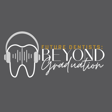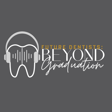
Dental Associateship 101
About the Hosts:
Dr. Savanah Craig is a dedicated dental professional navigating her early career paths post-graduation. With a background rooted in comprehensive dental care, Dr. Craig holds experience from her residency at Prisma Health (formerly Palmetto Health Richland) in Columbia, South Carolina. She is committed to advancing her skills in implantology, IV conscious sedation, and various other facets of modern dentistry.
Dr. Ronnetta Sartor, an experienced dental practitioner, completed her residency at the same institution and has solidified her reputation by attending multiple job interviews to find the perfect associateship fit. Her nearly five-year tenure at her chosen associateship (prior to acquiring her own practice) underscores her dedication to professional growth, mentorship, and patient care. She is versed in a variety of dental specialties, including 3D dentistry and surgical procedures.
Episode Summary:
Navigating the transition from dental school to professional practice can be challenging. In this compelling episode of "Beyond Graduation," Dr. Savanah Craig and Dr. Ronnetta Sartor delve deeply into the intricacies of securing an ideal dental associateship. Both doctors share their personal experiences and the critical lessons learned while seeking and securing their positions in the competitive dental field.
Dr. Sartor recounts her extensive journey through numerous job interviews, highlighting the significance of finding a practice that genuinely feels right. Emphasizing the importance of gut instinct, she discusses her prioritization of mentorship and practice environment over mere employment. Dr. Craig adds her perspective, stressing the necessity of aligning clinical skills and practice philosophies, especially after acquiring advanced training in residency. Together, they explore the essential questions to ask, the red flags to watch for, and the nuances of integrating into a new practice successfully.
Key Takeaways:
- Gut Feeling Matters: Trust your instinct when evaluating potential associateships; you'll often "just know" when you've found the right fit.
- Critical Questions to Ask: Inquire thoroughly about new patient allocation, team dynamics, and whether the practice supports continuing education.
- Importance of Team Integration: Get a sense of the practice's team culture and ensure they are ready to support an additional doctor.
- Evaluate Financial Logistics: Understand the pay structure, collection rates, and other financial aspects like health insurance and malpractice coverage.
- Look for Mentorship Opportunities: Seek a practice that not only offers mentorship but also allows for professional autonomy and growth.
Connect with Us:
- Savannah Craig, DDS: @savanahcraigdds
- Ronnetta Sartor, DMD: @dr_sartor
- FutureDentists Beyond Graduation: @futuredentistsbeyondgraduation
- Dental Residency Guide and Beyond Graduation eBooks: https://ignitedds.com/subscription-resources/
We invite you to dive into the full episode to gain deeper insights into securing a successful associateship and to subscribe.


